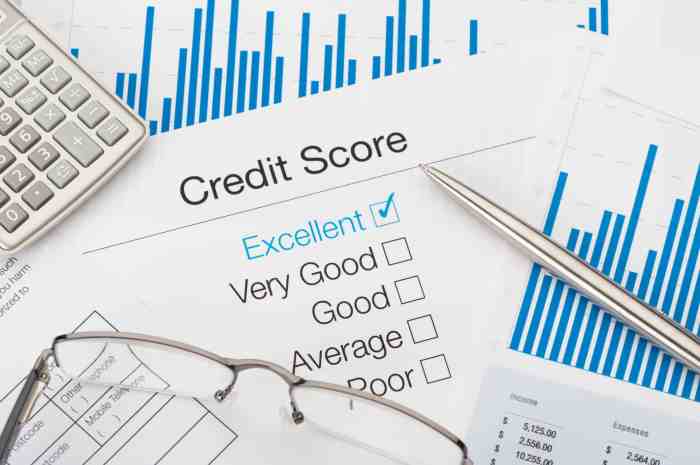Ways to Pay Off Debt Quickly and Efficiently Without Harming Credit
Ways to pay off debt quickly and efficiently without harming credit are crucial for long-term financial health. This guide explores effective strategies, from understanding your debt landscape and creating a realistic budget to employing smart repayment methods and potentially negotiating with creditors. We’ll delve into practical techniques to accelerate your debt repayment journey while safeguarding your credit score, empowering you to take control of your finances and build a brighter financial future.
Successfully navigating debt requires a multi-faceted approach. Understanding your debt, including interest rates and types of debt, is the first step. This understanding informs the creation of a practical budget, highlighting areas for expense reduction and identifying opportunities to increase income. Strategic debt repayment methods, like the debt snowball or avalanche, can significantly accelerate the process. Furthermore, negotiating with creditors and maintaining good credit habits are crucial components of a successful debt repayment plan.
Finally, seeking professional help when needed can provide valuable support and guidance.
Maintaining Good Credit
Maintaining a good credit score is crucial, especially while aggressively paying down debt. A strong credit score can help you secure better interest rates on loans and credit cards in the future, even after your debt is eliminated. Understanding the factors that influence your credit score and proactively managing them is key to financial health.Your credit score is a numerical representation of your creditworthiness, calculated using various factors.
These factors are weighted differently by different credit scoring models, but generally include payment history, amounts owed, length of credit history, credit mix, and new credit. Consistent on-time payments are the most significant factor, contributing to a substantial portion of your overall score. Keeping your credit utilization low (the amount of credit you use compared to your total available credit) is also vital.
A longer credit history, a diverse mix of credit accounts (credit cards, loans, etc.), and avoiding opening too many new accounts in a short period all positively influence your credit score.
Factors Influencing Credit Scores, Ways to pay off debt quickly and efficiently without harming credit
Payment history is the most important factor influencing your credit score. Late or missed payments significantly lower your score. Amounts owed, also known as credit utilization, refers to the percentage of your available credit you’re using. Keeping this below 30%, ideally below 10%, is recommended. The length of your credit history reflects how long you’ve responsibly managed credit accounts.
A longer history generally results in a higher score. Credit mix refers to the variety of credit accounts you have (e.g., credit cards, installment loans, mortgages). A healthy mix demonstrates responsible credit management. Finally, new credit inquiries, such as applications for new credit cards or loans, can temporarily lower your score.
Monitoring Credit Reports and Identifying Errors
Regularly monitoring your credit reports is essential for detecting and correcting errors. You are entitled to a free credit report from each of the three major credit bureaus (Equifax, Experian, and TransUnion) annually through AnnualCreditReport.com. Carefully review each report for inaccuracies, such as incorrect account information, late payments that weren’t actually late, or accounts that don’t belong to you.
If you find errors, dispute them immediately with the respective credit bureau. Provide documentation supporting your claim, such as payment receipts or bank statements.
Protecting Credit Scores During Debt Repayment
Maintaining a healthy credit score while aggressively paying off debt requires careful planning and consistent effort. The following checklist Artikels key actions:
Always pay your bills on time. This is the single most important factor in determining your credit score.
Keep your credit utilization low. Avoid maxing out your credit cards.
Avoid opening new credit accounts unless absolutely necessary.
Monitor your credit reports regularly for errors.
Dispute any inaccuracies on your credit reports promptly.
Consider a debt management plan if you are struggling to manage your debt.
Taking control of your debt requires proactive steps and a commitment to financial discipline. By combining a thorough understanding of your debt situation with strategic budgeting, effective repayment methods, and potentially negotiating with creditors, you can significantly accelerate your debt-free journey. Remember that maintaining good credit is paramount throughout this process. While the path may seem challenging, the rewards of financial freedom are well worth the effort.
With careful planning and consistent action, you can achieve your goal of becoming debt-free without compromising your credit score.
Quick FAQs: Ways To Pay Off Debt Quickly And Efficiently Without Harming Credit
What is the difference between a secured and unsecured loan?
A secured loan uses collateral (like a house or car) to guarantee repayment, while an unsecured loan does not, making it riskier for lenders and potentially resulting in higher interest rates.
Can I negotiate lower interest rates with my credit card company?
Yes, often. Contact your creditor and explain your financial situation. Be polite and professional; a documented history of on-time payments strengthens your position.
How often should I check my credit report?
It’s recommended to check your credit report at least annually from each of the three major credit bureaus (Equifax, Experian, and TransUnion) to monitor for errors or fraudulent activity.
What happens if I miss a payment?
Missing a payment negatively impacts your credit score, potentially leading to higher interest rates on future loans and difficulty obtaining credit. Contact your creditor immediately if you anticipate a missed payment.
